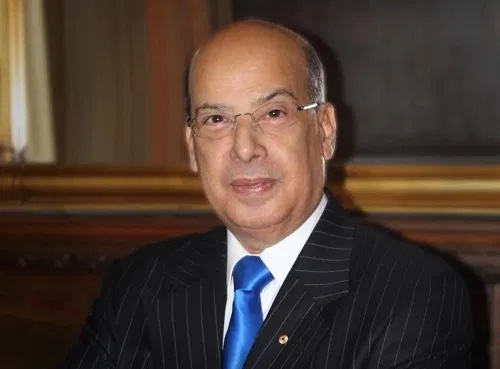Sanders assumed charge of OAS presidency for the second time
From Associates Times
Ambassador of Antigua and Barbuda to the OAS, Sir Ronald Sanders, has once again assumed the Presidency of the Permanent Council of the OAS Organisation.

Antigua and Barbuda: Ambassador of Antigua and Barbuda to the OAS, Sir Ronald Sanders, has once again assumed the Presidency of the Permanent Council of the OAS Organisation.
This is the second time that Sanders has assumed the charge. Sanders last served as the President of the Permanent Council in the year 2016.
The current political issues the organisation faces is with the public interest over the current security situation in Haiti, including uncontrolled kidnappings and surging levels of criminality, fired by anti-government protests. The organisation would also look at the political issues in Nicaragua and El Salvador.
The Council would this week make a decision on good offices mission to promote a dialogue between all the stakeholders which would further lead to fair and free elections.
Sanders further added that “I would also be keeping a watchful eye on the situation with respect to the distribution of vaccines related to the COVID-19 pandemic and would regularly consult with the Pan-American Health Organization – PAHO for further any procedure. – Advertisement –
Sanders was serving as the Vice-Chair of the OAS
Permanent Council and assumed the charge of the presidency after the unfortunate demise of Eliza Ruiz Diaz, Ambassador of Paraguay.
On assuming the charge, Sanders asserted that “The best tribute that could be given to the late President of the Permanent Council is to supervise successfully the challenging agenda before the Permanent Council.â€
OAS stands for Organisation of American States. It is an international association that was founded on 30 April 1948 with the aim of maintaining solidarity and cooperation among its member nations within the western hemisphere. Currently, the organisation have 34 member nations.
Following are some purposes of OAS-
- To strengthen the security and peace of the continent.
- To anticipate possible causes of difficulties and to guarantee the pacific settlement of disputes that may arise among the member countries.
- To support and strengthen illustrative democracy, with adequate respect for the principle of non-intervention.
- To inquire the solution to political, judicial, and economic problems that may arise among member nations.
- To promote, by cooperative action, their economic, social, and cultural development.
For more on this story go to: ASSOCIATES TIMES




